
Rivastar 2.5mg Tablet
Manufacturer
Orris Pharmaceuticals
Salt Composition
Rivaroxaban (2.5mg)
Key Information
Short Description
Rivastar 2.5mg Tablet is a medicine known as an anticoagulant or blood thinner. It helps prevent and treat blood clots. It is used to reduce the risk of stroke and heart attack.
Dosage Form
Tablet
Introduction
Rivastar 2.5mg Tablet is commonly used in patients with irregular heart rhythm (atrial fibrillation) to prevent clot formation. It also reduces the risk of getting clots in people who have undergone knee or hip replacement surgeries. It may be taken with or without food. Take it at the same time each day for maximum benefits. You may need to take this medicine for many years even for life in some cases. Do not stop taking it or change the dose without guidance from your doctor. It could quickly put you more at risk of having a heart attack, stroke, or thrombosis (formation of a blood clot within a blood vessel).
Directions for Use
Take this medicine in the dose and duration as advised by your doctor. Swallow it as a whole. Do not chew, crush or break it. Rivastar 2.5mg Tablet may be taken with or without food but it is better to take it at a fixed time.
How it works
Rivastar 2.5mg Tablet is a novel oral anticoagulant (NOAC). It works by stopping a clotting factor called factor Xa from working. This helps prevent the formation of blood clots in the body.
Quick Tips
Take at the same time every day. It is better to take at night with meals. It interacts less with food or other medicines. Hence frequent dose changes are not required. It increases your risk of bleeding. Be careful while shaving, cutting fingernails or toenails, using sharp objects or engaging in contact sports. It may cause dizziness. Avoid driving or activity requiring mental focus until you know how it affects you. If you are going to have a surgery or dental treatment, you may be asked to stop taking Rivastar 2.5mg Tablet temporarily. Notify your doctor if you have any kidney problem. Inform your doctor if you are pregnant, planning pregnancy or breastfeeding. Do not stop taking medication without talking to your doctor.
Related Medicines
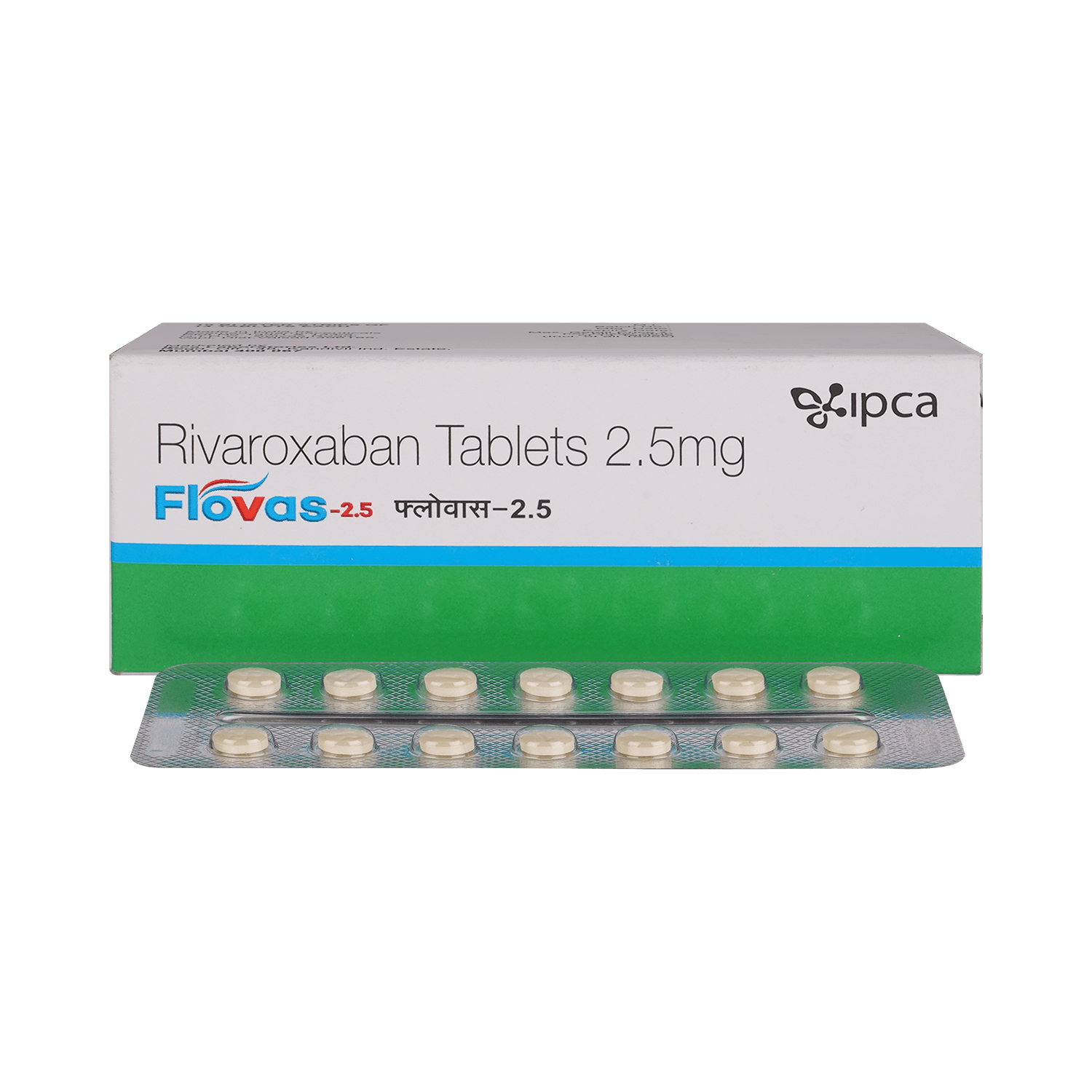
Flovas 2.5mg Tablet
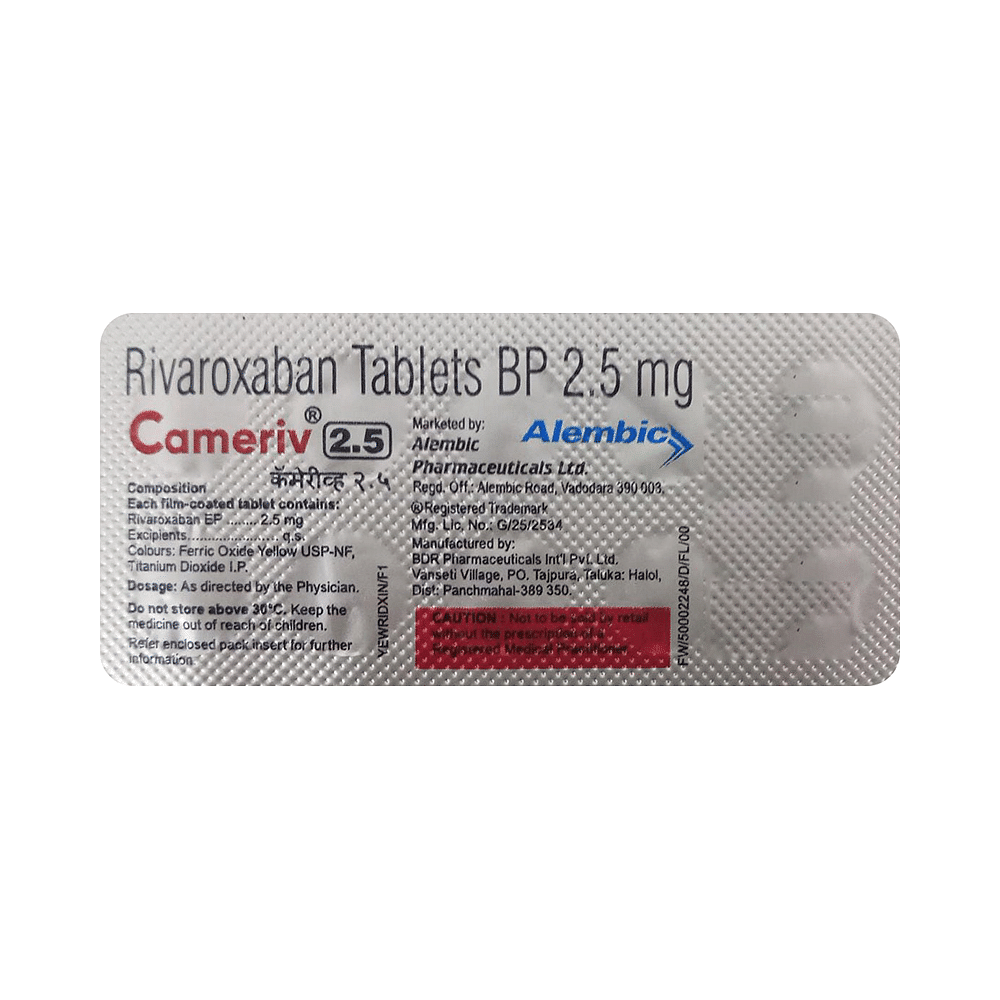
Cameriv 2.5 Tablet
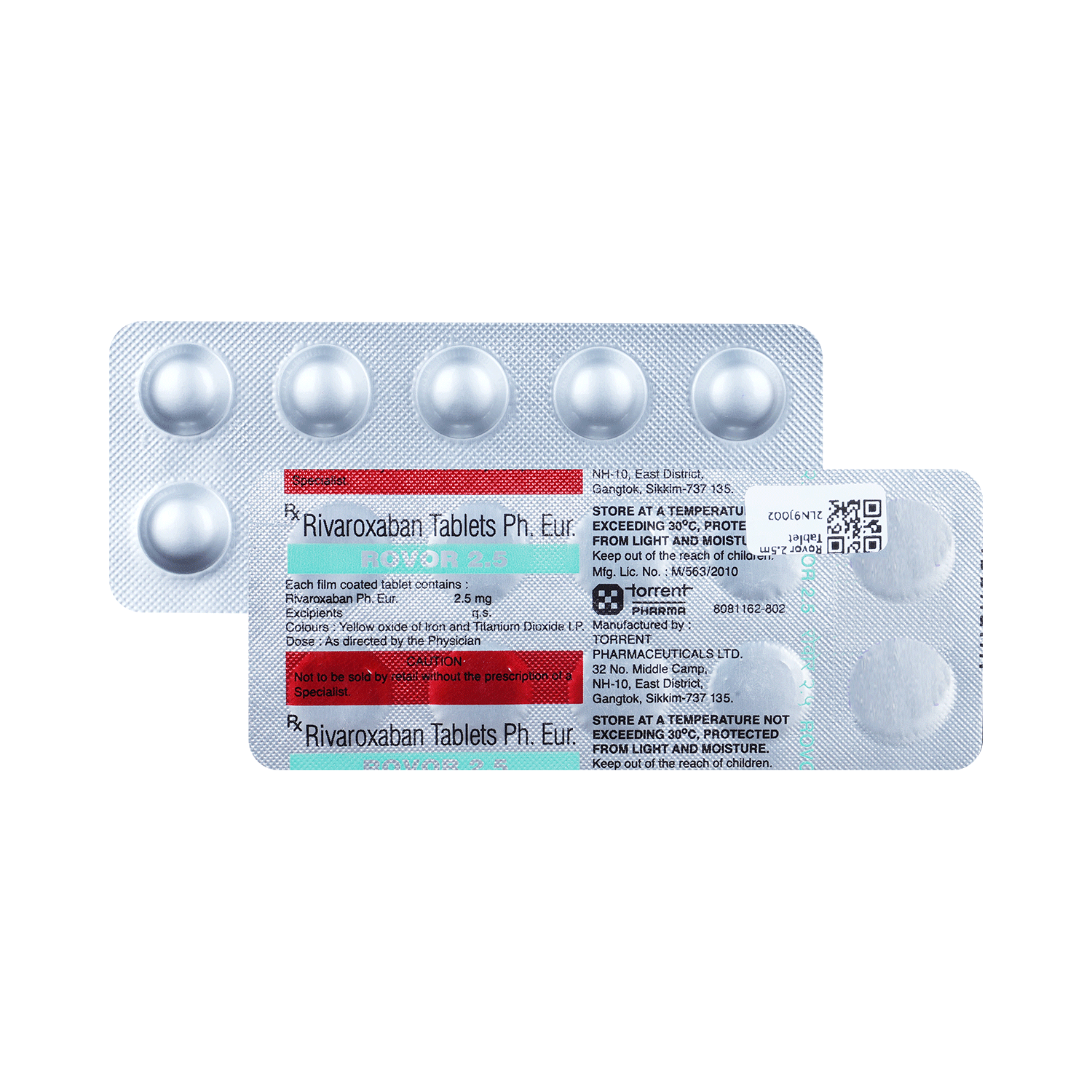
Rovor 2.5 Tablet

Ricosprin 2.5 Tablet
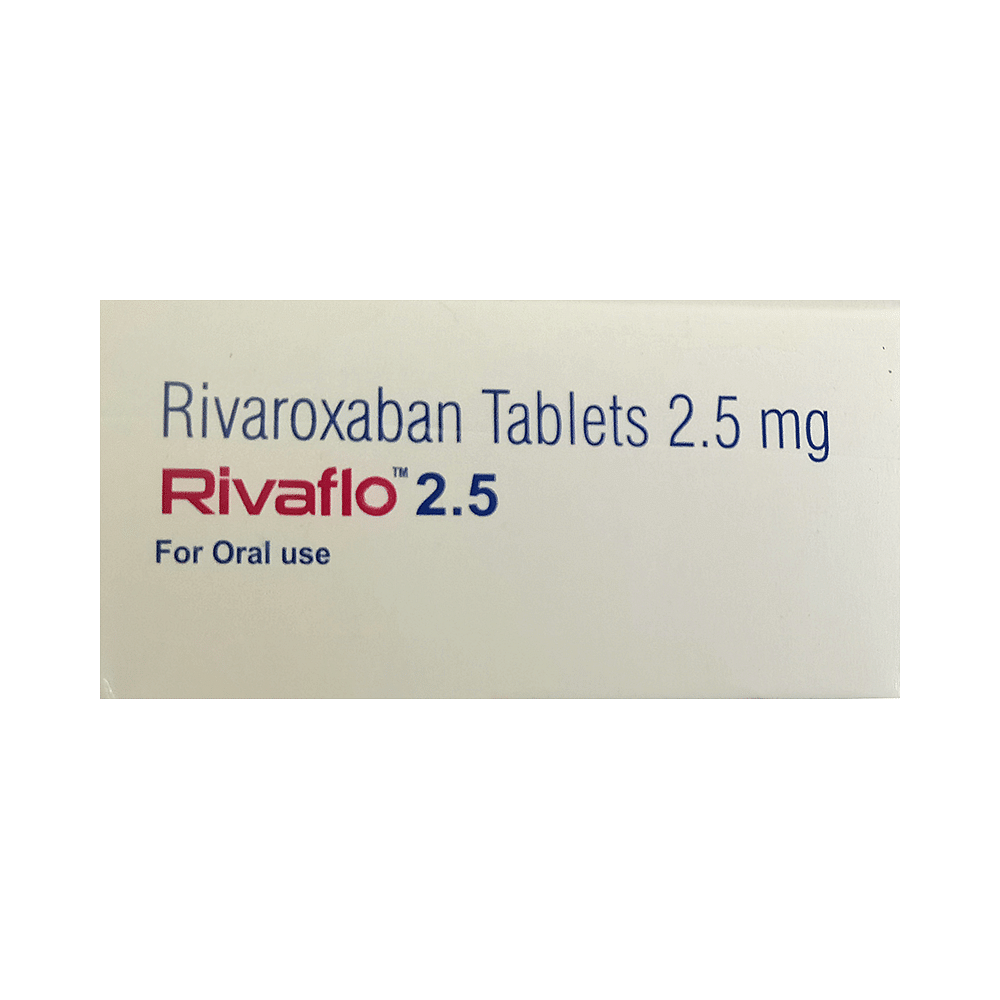
Rivaflo 2.5 Tablet
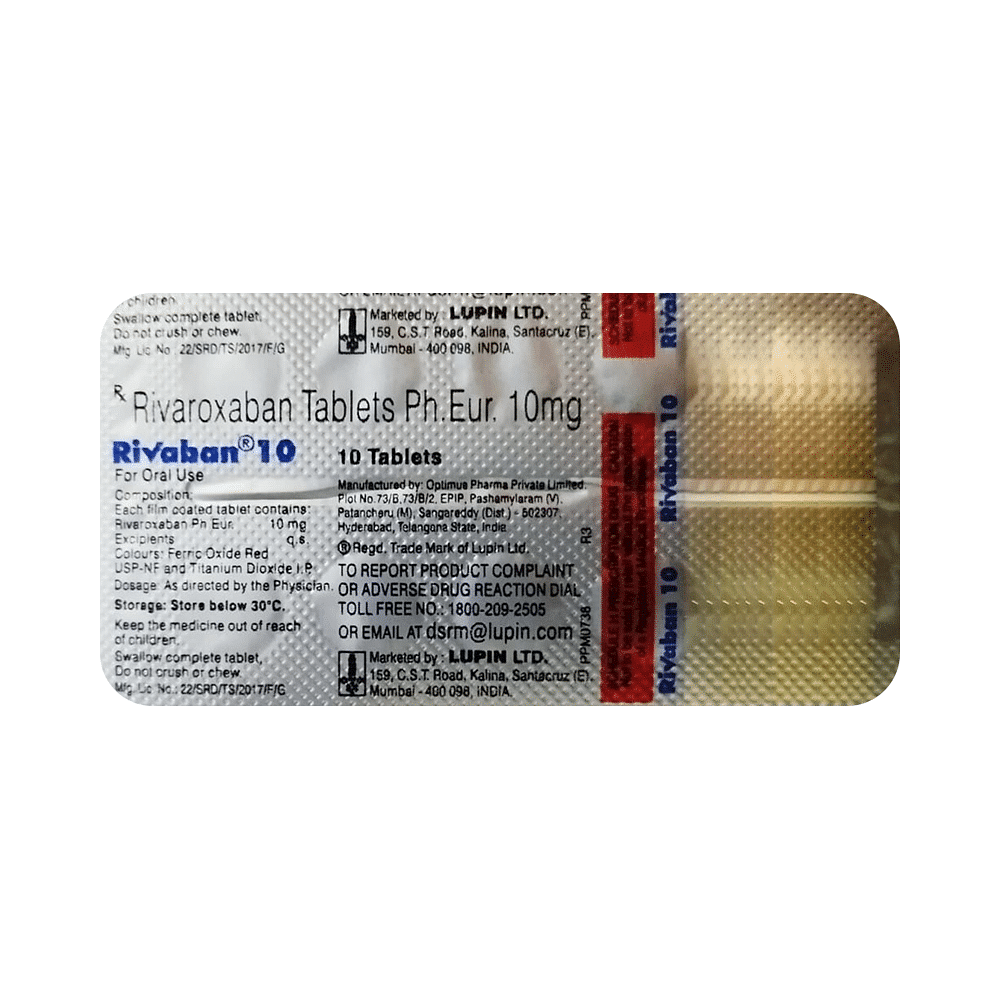
Rivaban 2.5mg Tablet

Rixant 2.5 Tablet
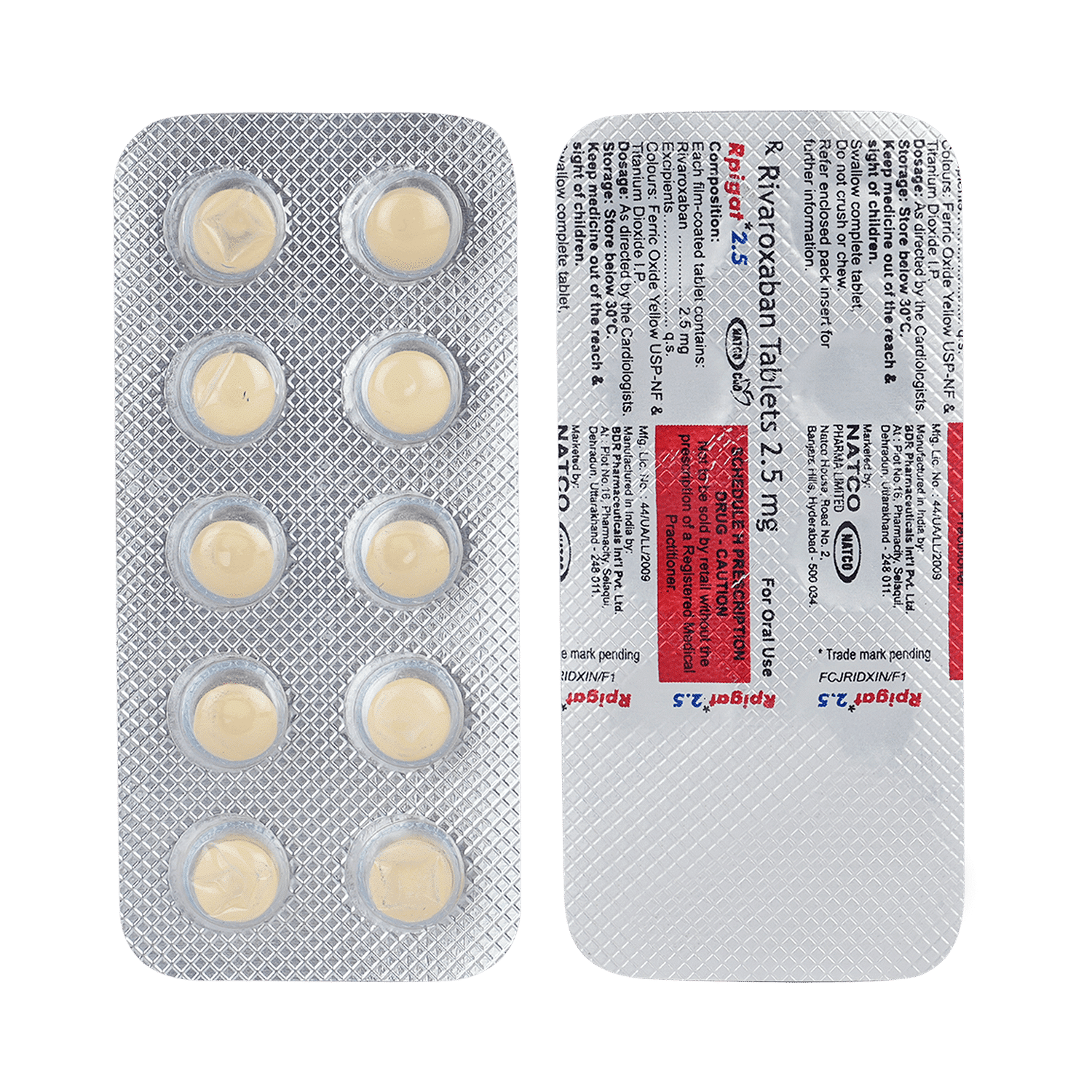
Rpigat 2.5mg Tablet

Rebless 2.5mg Tablet
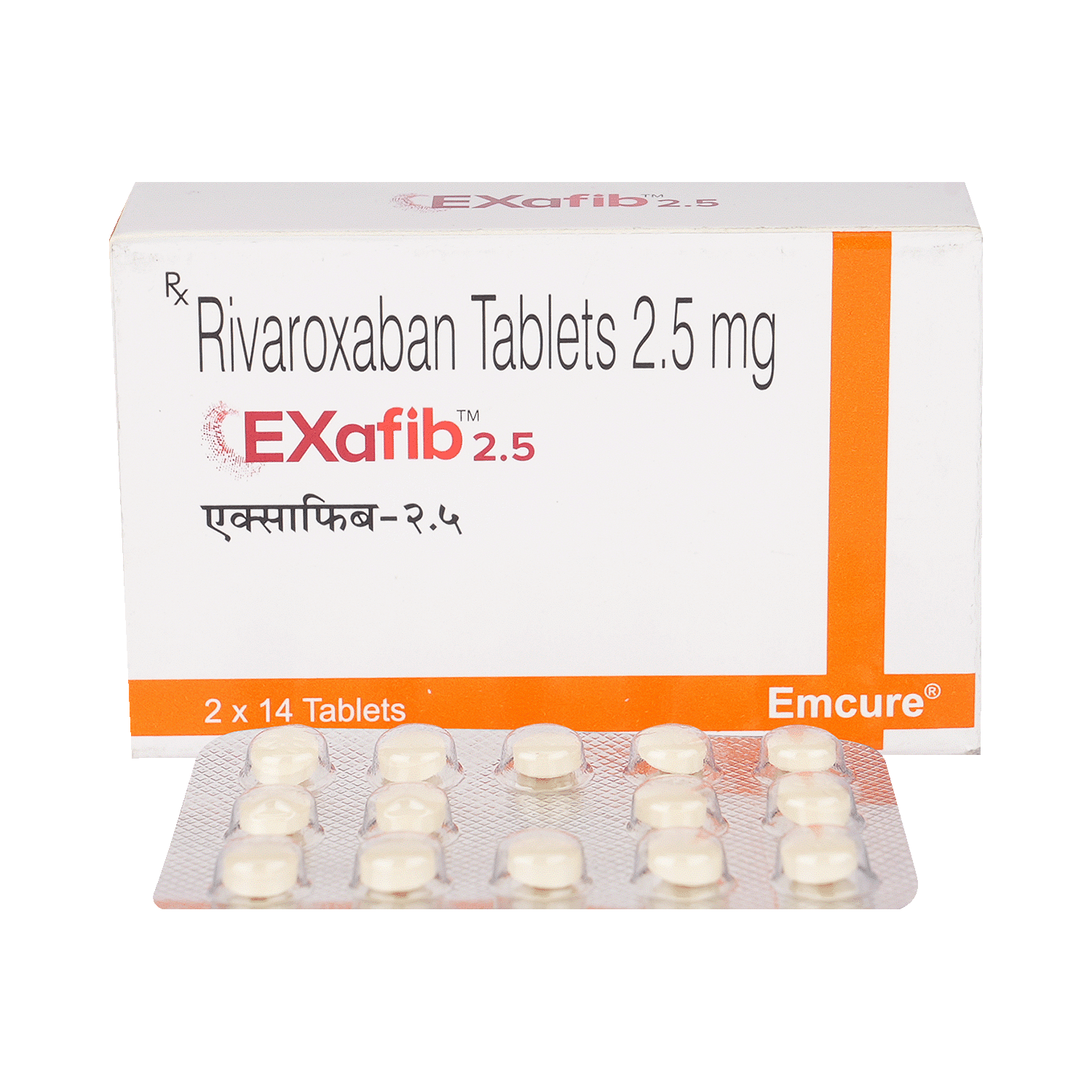
Exafib 2.5mg Tablet
Frequently asked questions
What are the potential side effects of Rivastar 2.5mg Tablet?
Common side effects may include prolonged bleeding, breathlessness, fatigue, paleness, dizziness, headache, and unexplained swelling. In some cases, severe skin reactions, bruising, coughing up blood, and bleeding from the skin or under the skin can occur. Rivastar 2.5mg Tablet may also increase bilirubin levels and decrease platelet count. Additionally, you might experience fainting episodes, rapid heartbeat, and dry mouth. If any of these side effects are noticed, it is essential to contact your doctor immediately.
Does Rivastar 2.5mg Tablet work as a blood thinner?
Yes, Rivastar 2.5mg Tablet is a blood thinner that prevents the formation of blood clots within blood vessels and helps prevent recurring blood clots in veins and lungs. It may be prescribed to treat blood clots in leg veins and pulmonary blood vessels.
What are the safety concerns associated with Rivastar 2.5mg Tablet?
While Rivastar 2.5mg Tablet has several benefits, it can cause excessive bleeding with even minor injuries due to its blood-thinning properties. In some cases, serious bleeding may occur and requires urgent medical attention. This risk is higher when taking Rivastar 2.5mg Tablet along with other blood thinners. If you notice any bleeding, contact your doctor promptly.
What foods should be avoided while taking a blood thinner like Rivastar 2.5mg Tablet?
Grapefruit and grapefruit juice should be avoided when taking Rivastar 2.5mg Tablet as they can slow down the metabolism of the medication, increasing the risk of bleeding. If you are taking warfarin or similar blood thinners, avoid foods that increase vitamin K activity or promote clotting, such as spinach, broccoli, and green tea.


